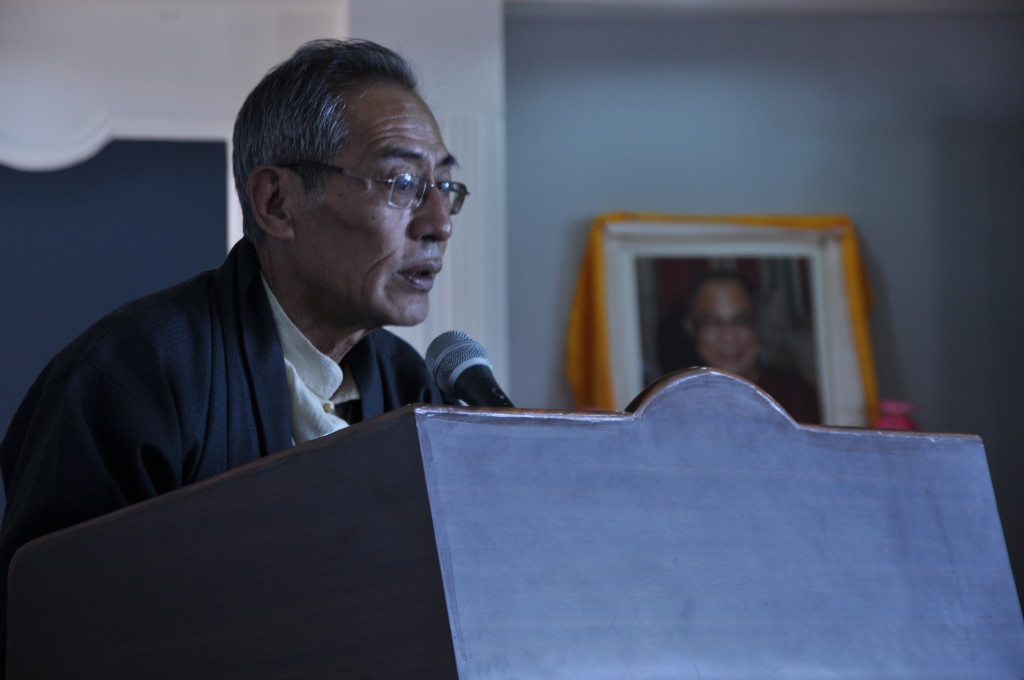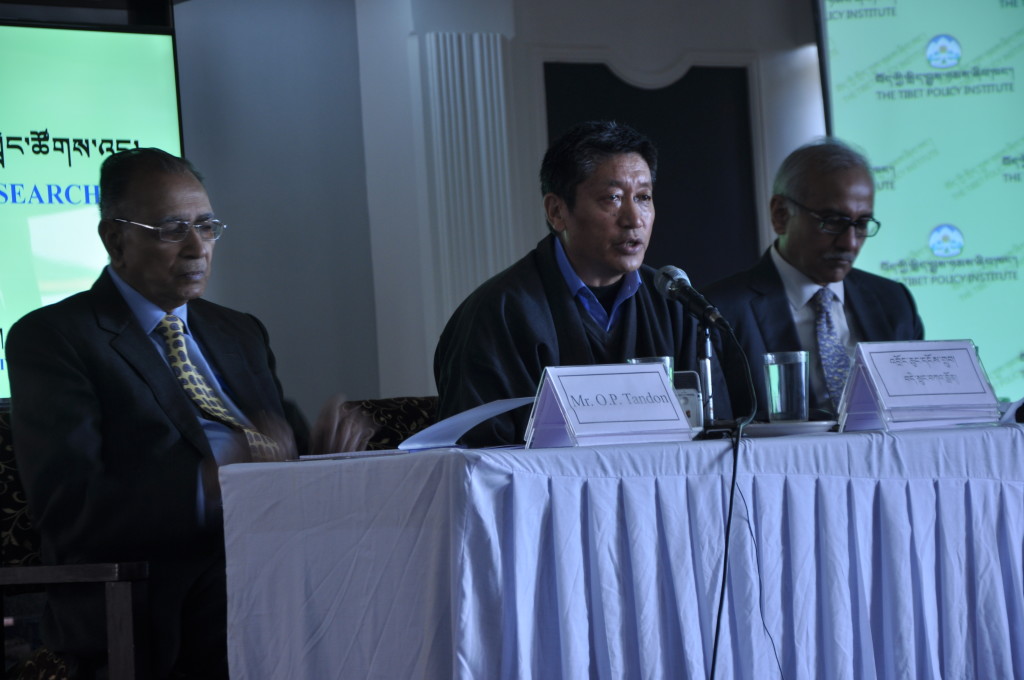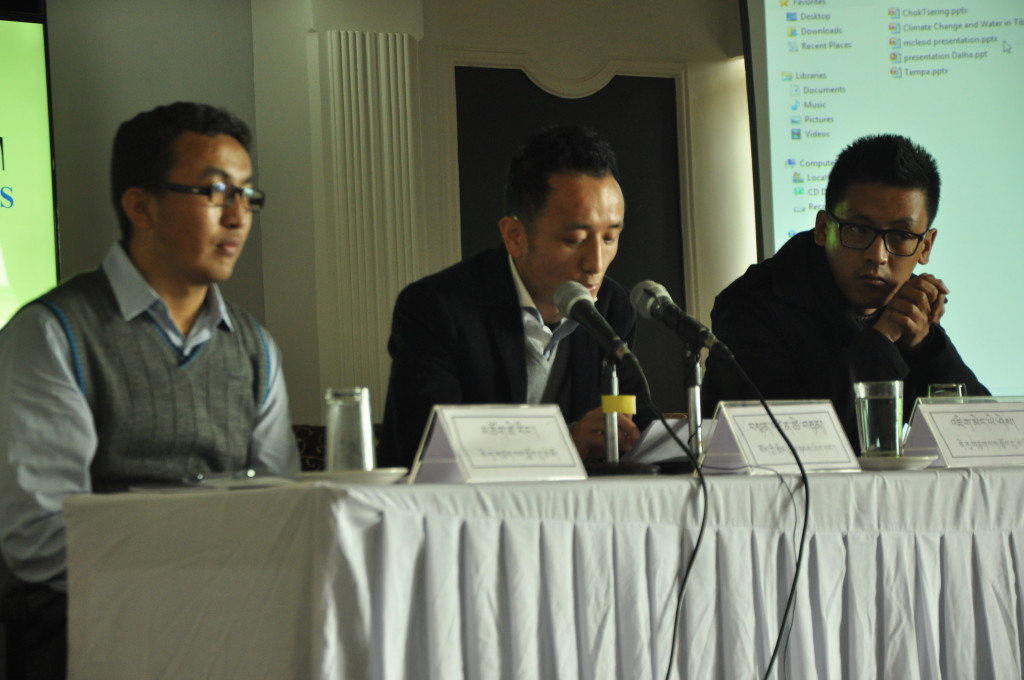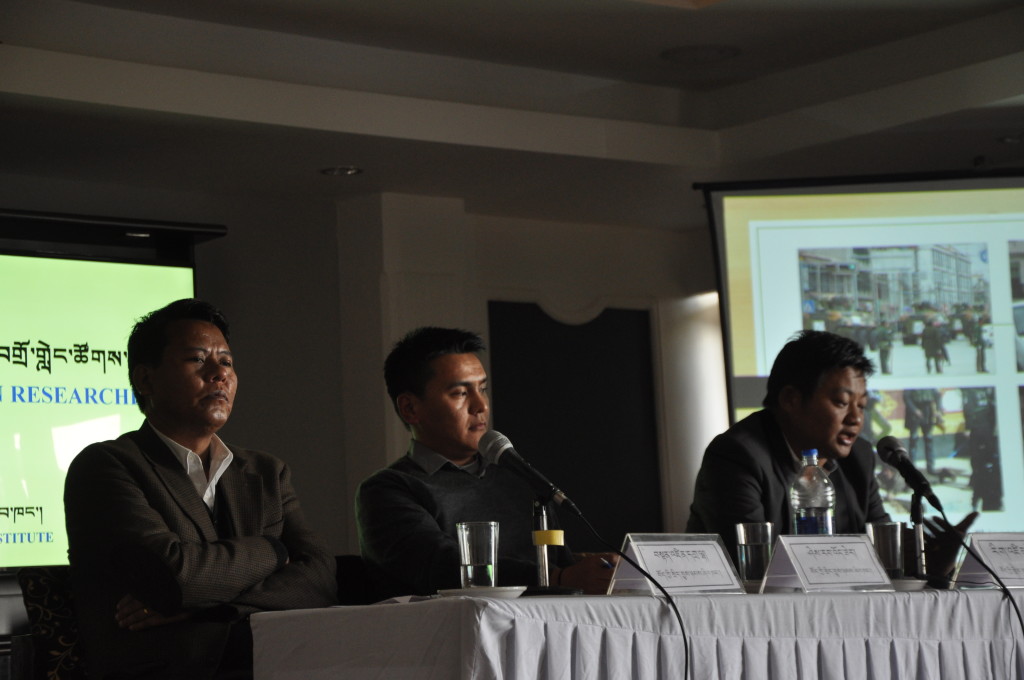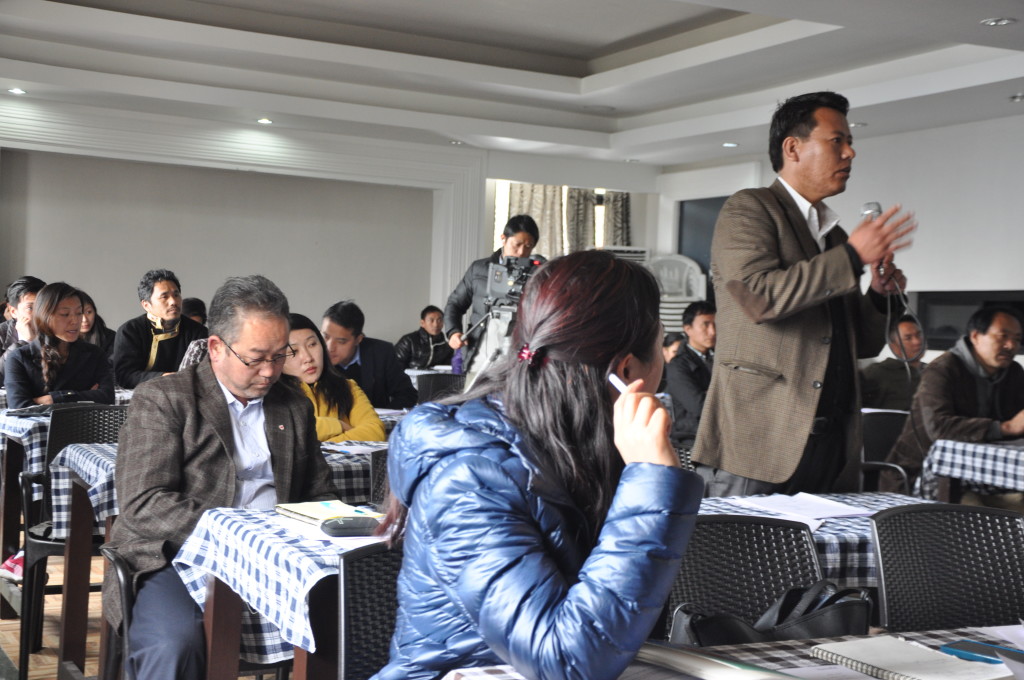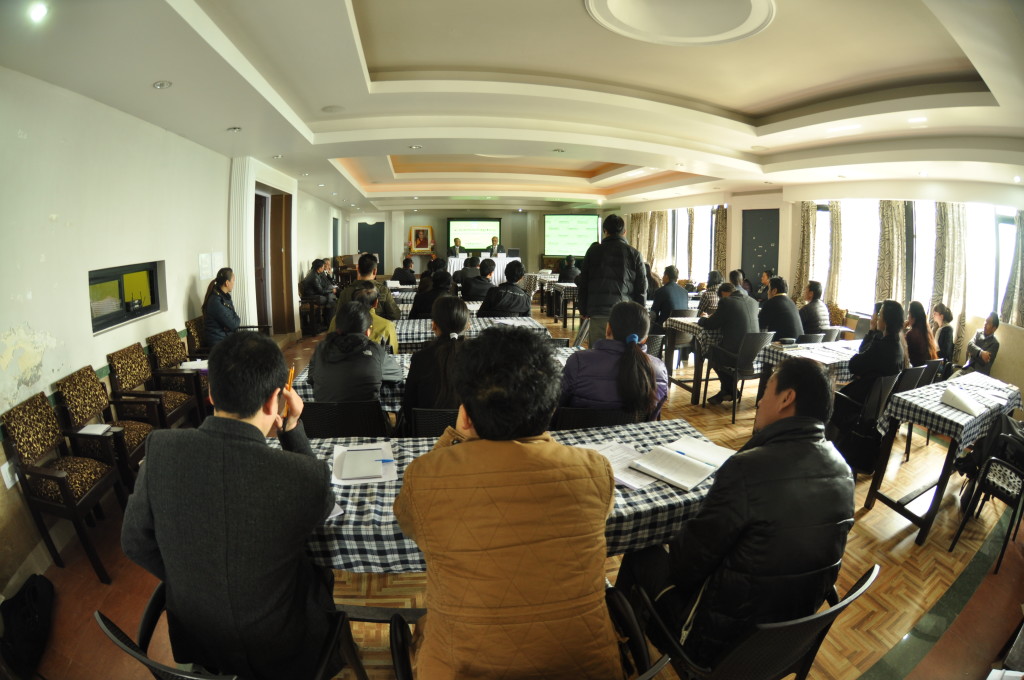Kalon Dhongchung Ngodup, minister of the Security Department of the Central Tibetan Administration today opened the one-day seminar, Tibet and Young Tibetan Researchers, organised by the Tibet Policy Institute in Dharamshala.
He was welcomed on the dais, along with special invitees and resource persons OP Tandon and Krishan Varma by Thubten Samphel, director of TPI.
Kalon Ngodup, who is also the vice-chairman of TPI’s governing body, in his speech thanked the organisers for bringing together “old friends” of Tibet, Mr Tandon and Mr Varma and young Tibetan researchers on a single platform to speak on a wide range of subjects.
Reflecting on his experience of observing and studying Tibet and China for over four decades, Kalon Ngodup spoke emphatically on the importance and relevance of research work and detailed analysis on various aspects of Tibet and the Tibetan struggle. Recollecting the earlier days, when the only source of information on Tibet was the cranky radio broadcasts of Peking and Lhasa radio, he pointed out the marked improvement in facilities these days and the easier access to research materials and information with the advent of the Internet.
Sharing his personal views, Kalon Ngodup urged young Tibetan researchers to exploit future opportunities by imbibing intellectual passion, astute impartiality and the practice of putting pen to paper every minute piece of information.
He recommended that researchers, based on their in-depth study and analysis, should be able to preempt possible changes, provide conjectures and give inferences on future scenarios in their respective fields of study, without carrying the burden of overstepping organisational viewpoints or official positions.
Suggesting an important area of study, he urged researchers to focus on the thinking process, the ideas and aspirations of Tibetans inside Tibet who have suffered through 60 years of abject Chinese oppression. He noted that such a study would reveal the impacts and implications of China’s social, educational, religious and economic policies being unilaterally implemented in Tibet.
Kalon Ngodup, in conclusion, stressed on the importance of academic and administrative autonomy of research centres and encouraged the Tibet Policy Institute to look into possibilities of transforming itself into a fully independent research centre.
Mr Varma, a life-long civil servant, who superannuated from the post of Special Secretary, Cabinet Secretariat, Government of India in September 2012 spoke on expanding relations between India and China while Mr Tandon, trustee of the Foundation for Non-violent Alternatives spoke on the activities being undertaken by his organisation.
Young Tibetan researchers from the reputed Jawaharlal Nehru University in Delhi, Jigme Yeshi, Chok Tsering and Lobsang Yangtso, spoke on a diverse range of subjects while researchers of the TPI also gave presentations.
The one-day seminar, Tibet and Young Tibetan Researchers, concluded with a vote of thanks by Tsering Yangkey, deputy director of TPI. The seminar was held at the Nyatri Hall of the Central Tibetan Administration as a part of the Tibet Policy Institute’s annual conference on Tibet.

